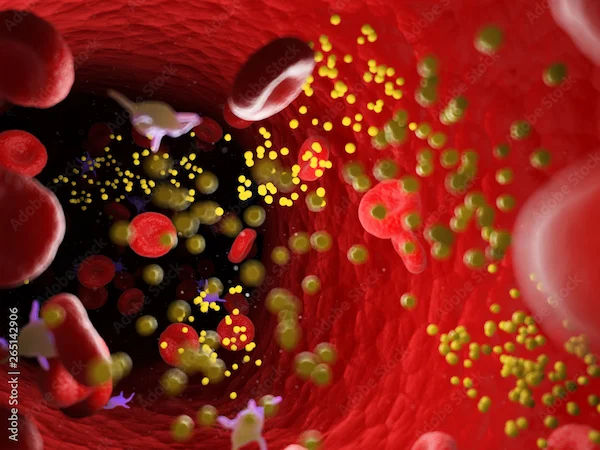Understanding Thyroid Stimulating Hormone Levels
Understand Thyroid Stimulating Hormone (TSH) levels, what high or low readings mean, and how they help diagnose thyroid conditions like hypothyroidism and hyperthyroidism.

Written by Dr. Rohinipriyanka Pondugula
Reviewed by Dr. Shaik Abdul Kalam MD (Physician)
Last updated on 28th Aug, 2025

Your thyroid is a small, butterfly-shaped gland in your neck that plays a big role in keeping your body running smoothly. One of the key ways doctors check how well your thyroid is working is by measuring your Thyroid Stimulating Hormone (TSH) levels. If you’ve recently had a TSH test or are curious about what it means, this guide will help you understand why TSH matters, what different levels indicate, and how to manage any imbalances.
What is TSH
Thyroid Stimulating Hormone (TSH) is a hormone made by the pituitary gland in your brain. Its job is to tell your thyroid gland to produce two other important hormones: thyroxine (T4) and triiodothyronine (T3). These hormones control your metabolism; how your body uses energy; and affect everything from your heart rate to your weight, mood, and energy levels.
Think of TSH as a thermostat: if your thyroid hormones (T4 and T3) are low, your pituitary gland releases more TSH to "turn up" thyroid production. If thyroid hormones are high, TSH levels drop to "turn down" thyroid activity.
Why Are TSH Levels Important?
A TSH test helps doctors determine whether your thyroid is working properly. Abnormal TSH levels can indicate:
- Hypothyroidism (Underactive Thyroid) – High TSH means your thyroid isn’t making enough hormones.
- Hyperthyroidism (Overactive Thyroid) – Low TSH means your thyroid is making too many hormones.
- Pituitary Gland Issues – Sometimes, TSH levels are abnormal because of problems in the brain rather than the thyroid itself.
What Do Your TSH Levels Mean?
TSH levels are measured in milli-international units per liter (mIU/L). The normal range is usually between 0.4 to 4.0 mIU/L, but this can vary slightly depending on the lab.
- High TSH (Above 4.0 mIU/L)
- Possible Condition: Hypothyroidism (underactive thyroid)
Symptoms:
- Fatigue and sluggishness
- Weight gain
- Feeling cold often
- Dry skin and hair
- Constipation
- Depression
Common Causes:
- Hashimoto’s disease (an autoimmune disorder)
- Iodine deficiency
- Thyroid surgery or radiation treatment
- Low TSH (Below 0.4 mIU/L)
- Possible Condition: Hyperthyroidism (overactive thyroid)
Symptoms:
- Weight loss despite normal eating
- Rapid or irregular heartbeat
- Anxiety or irritability
- Sweating and heat intolerance
- Tremors in hands
Common Causes:
- Graves’ disease (an autoimmune disorder)
- Thyroid nodules (lumps that produce excess hormones)
- Too much thyroid medication
Borderline TSH Levels
Sometimes, TSH levels are slightly outside the normal range but not extreme. Your doctor may monitor you or order additional tests (like Free T4 or Free T3) to get a clearer picture.
How to Manage Abnormal TSH Levels
If You Have High TSH (Hypothyroidism)
- Medication: Most people with hypothyroidism take levothyroxine, a synthetic thyroid hormone, to balance their levels.
- Diet: Ensure enough iodine (found in iodized salt, seafood, dairy) and selenium (found in Brazil nuts, eggs, fish).
- Lifestyle: Regular exercise and stress management can help with symptoms like fatigue and weight gain.
If You Have Low TSH (Hyperthyroidism)
- Medication: Anti-thyroid drugs (like methimazole) or beta-blockers may be prescribed.
- Diet: Avoid excess iodine (found in seaweed, supplements) and caffeine, which can worsen symptoms.
- Lifestyle: Gentle exercises like yoga can help manage anxiety and tremors.
When to See a Doctor
If you experience symptoms like unexplained weight changes, extreme fatigue, mood swings, or heart palpitations, it’s a good idea to get your TSH levels checked. A simple blood test can help diagnose thyroid issues early, preventing complications like heart disease or infertility.
Book a TSH Test or Consultation
If you suspect a thyroid problem, Apollo 24|7 makes it easy to book a TSH test or consult an endocrinologist from home. Early detection and treatment can make a big difference in your health and well-being.
Final Thoughts
Your thyroid may be small, but it has a huge impact on your overall health. Understanding TSH levels helps you stay informed and take control of your well-being. If you have concerns, don’t hesitate to reach out to a healthcare provider—because a balanced thyroid means a happier, healthier you!
Would you like to schedule a thyroid test or speak to a specialist? Visit Apollo 24|7 today for quick and convenient healthcare support.
Consult an Endocrinology for the best advice
Consult an Endocrinology for the best advice

Dr. Anand Ravi
General Physician
2 Years • MBBS
Bengaluru
PRESTIGE SHANTHINIKETAN - SOCIETY CLINIC, Bengaluru

Dr. Nithin Reddy Modhugu
Endocrinologist
6 Years • MBBS, MD (General Medicine), DNB (Endocrinology)
Hyderabad
Dr. Nithin's Endocrine Clinic, Hyderabad
(100+ Patients)

Dr. Gayatri S
Endocrinologist
4 Years • Suggested Qualifictaion- MBBS, MD (Internal Medicine), DM (ENDOCRINOLOGY)
Nellore
Narayana hospital, Nellore

Dr. Shrikrishna V Acharya
Endocrinologist
25 Years • MBBS, MD, DM(Endocrinology), MRCP (Endocrinology)
Bengaluru
Apollo Clinic, JP nagar, Bengaluru

Dr. E Prabhakar Sastry
General Physician/ Internal Medicine Specialist
40 Years • MD(Internal Medicine)
Manikonda Jagir
Apollo Clinic, Manikonda, Manikonda Jagir
(125+ Patients)




